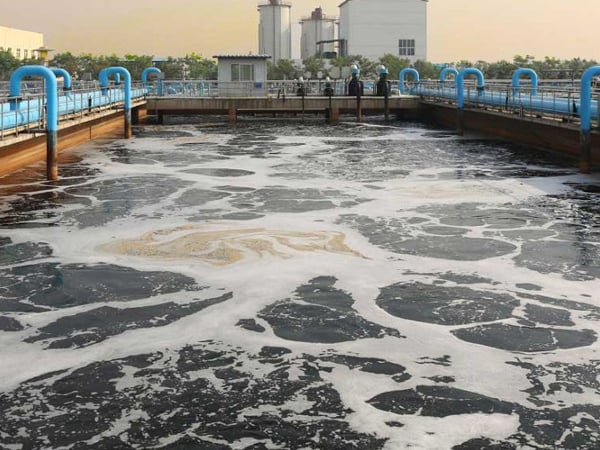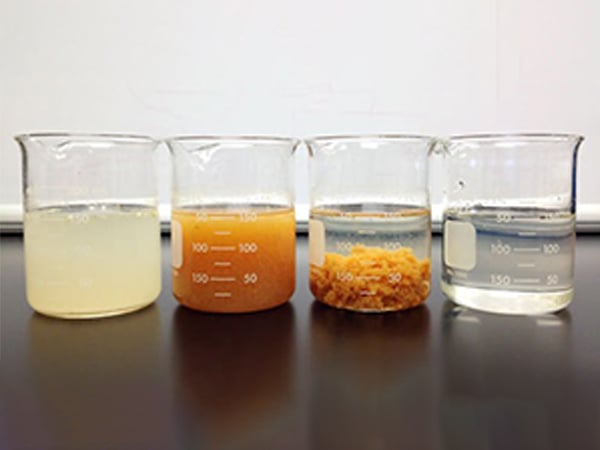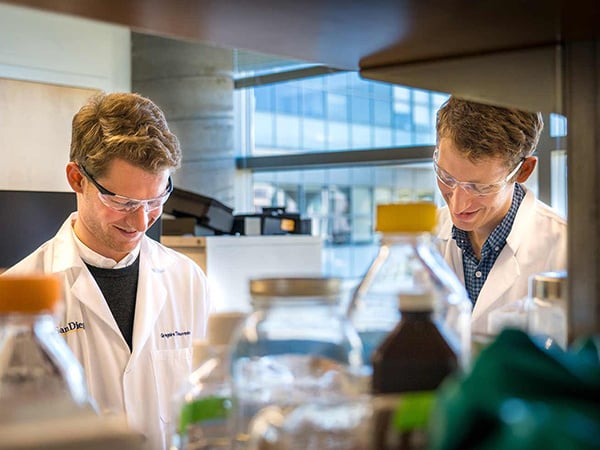In an effort to preserve the environment, waste treatment is one topic that is never ending to be discussed. Among the various methods available, Chemical Sewage Treatment offers an effective solution in addressing pollution problems. This method not only reduces the volume of waste that could potentially damage the environment, but also converts it into a safer substance. Thus, the importance of chemical treatment of waste is not only limited to the environmental aspect, but also the health and safety of mankind.

What is Chemical Sewage Treatment?
Chemical sewage treatment is the process of changing the chemical composition of sewage to make it more stable and less harmful. This process involves the use of chemical reagents to break down, remove, or alter the harmful components in the waste. Various techniques such as neutralization, oxidation, reduction, and precipitation are used to achieve the desired results. The main goal of this treatment is to minimize the negative impact of the waste on the environment and humans, making the waste easier to treat or recycle.
In the process, chemical reagents are used to break down, remove, or transform hazardous components in the waste.
In the process, chemical reagents are selected based on the type and characteristics of the effluent, ensuring that each contaminant can be effectively targeted and treated. In addition, chemical waste treatment also pays attention to safety and energy efficiency aspects, reducing the use of natural resources and minimizing harmful emissions. The process supports sustainability efforts by converting waste into useful products or ensuring safe final disposition, thus contributing to pollution reduction and ecosystem protection. Through these techniques, industries can comply with strict environmental regulations and enhance their corporate social responsibility towards the planet.

Chemical Sewage Treatment Methods
Various methods can be applied in chemical effluent treatment, depending on the type and composition of the effluent at hand. Some of the most common methods include:
- Coagulation and Flocculation: This process involves adding chemicals that cause the smallest particles in the effluent to agglomerate into larger flocs, so they can be more easily separated from the water. Coagulant substances such as alum and polymers are added to facilitate this process, effectively tackling turbidity and removing microscopic contaminants.
- Filtration: After the coagulation and flocculation process, the effluent often needs to be filtrated to remove any remaining solid particles. Filtration can be done using sand, ceramic, or membrane filters whose role is to capture residual particles, helping to clarify the wastewater before discharge or further treatment.
- Netralization: This method is used to adjust the pH of the effluent, turning it into a neutral condition so that it is not corrosive or harmful. The use of the right amount of acid or base can balance the pH, essential for further processing and to ensure that the effluent does not damage the treatment system or the environment.
- Neutralization.
- Oxidation and Reduction: These chemical processes convert harmful components in waste into more stable and safe compounds. This technique uses oxidizing or reducing agents to neutralize harmful pollutants such as heavy metals and organic compounds, converting them into less toxic forms.
- .
In addition to the above methods, adsorption is also often used to remove contaminants from wastewater. In this process, contaminants adhere to the surface of an adsorbent such as activated carbon, reducing the concentration of pollutants in the effluent. These methods, either individually or in combination, prove their effectiveness in treating chemical effluents, by selecting the most suitable strategy based on a comprehensive analysis of the effluent characteristics, we can optimize the reduction of negative impacts on the environment and human health. Through the application of appropriate technologies and reagents, chemical effluent treatment not only achieves the goal of environmental protection but also supports the principle of sustainability by enabling resource recovery from effluents.

Benefits of Chemical Sewage Treatment
The benefits of chemical effluent treatment are extensive, including:
- Environmental Protection: Reduces the risk of soil, water and air pollution. Through the neutralization of hazardous chemicals and conversion of waste into safer forms, chemical treatment significantly reduces the likelihood of environmental contamination, supporting efforts to conserve natural habitats and biodiversity.
- Public Health: Prevent the spread of disease and contamination caused by hazardous waste. By eliminating or reducing toxins and microorganisms from waste, chemical treatment protects drinking water sources and the food chain from contamination, helping to prevent disease outbreaks.
- Public Health.
- Cost Savings: Reduces costs associated with waste handling and disposal, as well as potential fines for environmental violations. The efficiency of chemical treatment processes contributes to a reduction in the volume of waste that must be handled, reducing the need for disposal land and optimizing the use of resources.
- Cost Savings
- Resource Recycling: Enables recovery and reuse of materials from treated waste. This creates new economic opportunities and reduces the need for raw materials, supporting a circular economy and reducing pressure on natural resources.
In addition, chemical waste treatment also contributes to technological innovation and development. Through continuous research and development, new techniques and effective chemicals are continuously discovered, increasing the effectiveness of waste treatment. This process also encourages the adoption of more sustainable industrial practices, where companies become more aware of the environmental impact of their operations and strive to implement greener solutions. Finally, with increased awareness of the importance of responsible waste treatment, communities are becoming more involved in environmental conservation efforts, bringing about positive changes on a global scale.

Chemical waste treatment plays a key role in efforts to preserve the environment and public health. By applying the right treatment methods and continuously innovating in technology, we can reduce the negative impact of waste on the planet. Every step taken in treating waste responsibly is a step towards a more sustainable future.
In the journey towards achieving this goal, Beta Pramesti Asia offers chemical solutions for effluent treatment. We understand the importance of ensuring waste is treated in a safe and effective manner, not only to protect the environment but also to support the well-being of our communities. With innovative products and technologies, Beta Pramesti Asia is committed to supporting companies and communities in achieving greener and more sustainable operations.
If you are looking for a tested and trusted solution for your sewage treatment needs, feel free to contact us via via Whatsapp or e-mail. Together, we can make a significant difference in ensuring a cleaner environment and a brighter future for generations to come. Let us take the next step in this journey with Beta Pramesti Asia.
